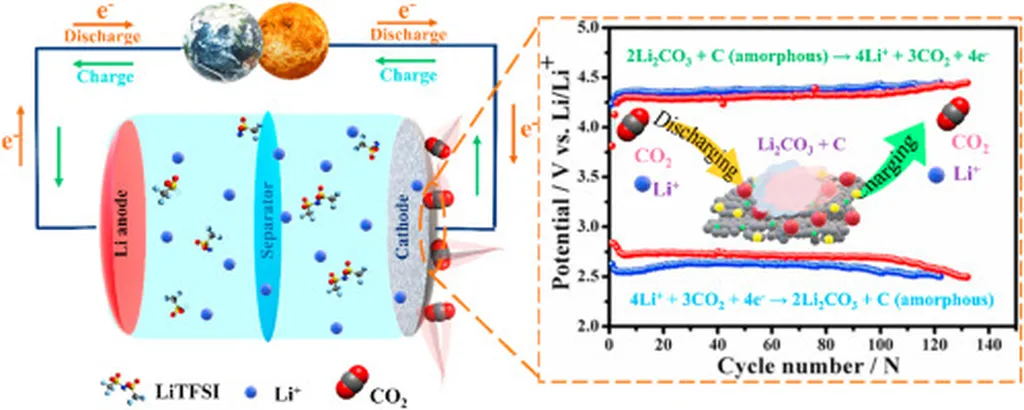In the quest for advanced energy storage solutions, researchers have long been exploring the potential of potassium-ion batteries (KIBs) as a more sustainable and cost-effective alternative to lithium-ion batteries. A recent study published in the journal *Sustainable Materials (SusMat)* sheds new light on how atomic doping can significantly enhance the electrochemical performance of hard carbon (HC) anodes in KIBs, offering promising avenues for the energy sector.
The research, led by Ziyi Zhu of the National and Local Joint Engineering Research Center of Lithium-Ion Batteries and Materials Preparation Technology at Kunming University of Science and Technology in China, delves into the intricate mechanisms by which nitrogen and sulfur (N/S) co-doping influences the microstructure and performance of hard carbon. “We found that N/S co-doping not only serves as active sites for electrochemical redox reactions but also expands the carbon interlayer spacing and regulates electronic properties, thereby improving diffusion kinetics,” Zhu explains. This dual functionality is a game-changer for the field, as it addresses both the structural and electronic aspects of potassium-ion storage.
One of the most remarkable findings of the study is the role of N/S in adjusting the curvature of graphitic microcrystallites, which promotes the formation of closed pore structures. These structures are crucial for the pore-filling of quasi-metallic potassium clusters, a process that enhances the overall performance of the battery. “The introduction of N/S can significantly improve the pore-filling mechanism, contributing to the ‘adsorption-insertion/pore-filling’ mechanism for potassium storage in hard carbon,” Zhu adds.
The study employs multidimensional characterization techniques to confirm these mechanisms, providing a comprehensive understanding of how atomic doping can be leveraged to enhance the electrochemical performance of hard carbon anodes. This research establishes a theoretical framework for designing high-performance HC anodes, offering a methodological foundation for the advancement of potassium-ion batteries.
The implications of this research are far-reaching for the energy sector. As the demand for sustainable and cost-effective energy storage solutions continues to grow, the insights provided by Zhu and his team could pave the way for the development of next-generation batteries. “This work not only offers a theoretical foundation but also a selection methodology for the advancement of high-performance HC anodes,” Zhu notes. The findings could accelerate the commercialization of potassium-ion batteries, providing a viable alternative to lithium-ion batteries in various applications.
Published in *Sustainable Materials (SusMat)*, this study represents a significant step forward in the field of energy storage. As researchers continue to explore the potential of atomic doping and other innovative strategies, the future of potassium-ion batteries looks increasingly bright. The work by Zhu and his team serves as a testament to the power of interdisciplinary research and the potential it holds for transforming the energy landscape.

